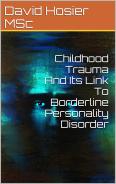Tags
Schema-Focused Hypnotherapy for Trauma
As we grow up and interpret the world around us, we develop what psychologists term schemas. Essentially, a schema is an organized system of meaning around specific topics which include :
– how we view/evaluate ourselves
– how we view/evaluate others
– our judgments about our own autonomy (ie how much control we have over our own lives)
– our view of our relationships with others
Such schemas as the above are formed in early life, and, subsequently, dictate how we habitually respond to the world around us. If we have suffered adversity in childhood and had dysfunctional relationships with parents (who are of particular importance in the influence of how our schemas develop), peers, siblings etc, we will, almost inevitably, come to form a dysfunctional (ie self-damaging) set of schemas Examples may include : ‘I am unloveable’ ; ‘I will always be rejected’ ; ‘other people are untrustworthy’ ;’others will always take advantage of me and betray me’ etc. All of these beliefs (or ‘schema’) which we carry with us through life may, of course, be totally inaccurate (what psychologists call cognitive distortions) but feel real because of the manner in which we were conditioned, both explicitly and implicitly, as children.
Once we have formed such negative (or maladaptive) schemas, we maintain them due to a phenomenon known as the CONFIRMATION-BIAS. This refers to the in-built tendency that we all have to ‘see in life what we want to see’ or ‘find what we are looking for’ ; in other words, we tend to selectively attend to only the information that confirms our prejudices, whilst ignoring evidence which contradicts them (this happens on a mainly unconscious level). Our skewed and negative cognitive distortions, then, add up to a self-fulfilling prophecy. We mentally construct an image of the world in keeping with our negative schemas. We construct our own version of ‘reality’, deeply tainted by our adverse childhood experiences.
COGNITIVE DISTORTIONS ARE RESISTANT TO CHANGE
Unfortunately, our inaccurate schemas, or cognitive distortions, are so deeply ingrained into us by our childhood conditioning that they become highly resistant to change. Indeed, we do not see them even as beliefs, as such, but conclude our schemas reflect ‘just the way things are.’ This is why it takes therapy, of which cognitive hypnotherapy is one, to systematically alter, for the better, our hitherto overwhelmingly bleak world view ; to turn our dysfunctional schema into more functional ones.
COGNITIVE HYPNOTHERAPY AND IMAGERY
Cognitive hypnotherapy, as the name suggests, combines elements of cognitive therapy and hypnosis, together with schema theory and imagery. The use of imagery is important because many of the schemas we have developed in life have been the result of implicit learning (ie learning that takes place on a non-verbal level and is therefore better therapeutically addressed through non-verbal techniques).
Imagery within hypnotherapy can be very effectively put to various uses. These include improving coping abilities. mentally ‘jumping ahead in time’ (to put a ‘temporal distance’ between us our particular problem), desensitization (mentally repeating an image to deplete it of its power over us), and ‘spatial distancing’ (to create a ‘physical distance’ between us particular trauma or other difficulties).
Best wishes, David Hosier BSc Hons ; MSc ; PGDE(FAHE).




